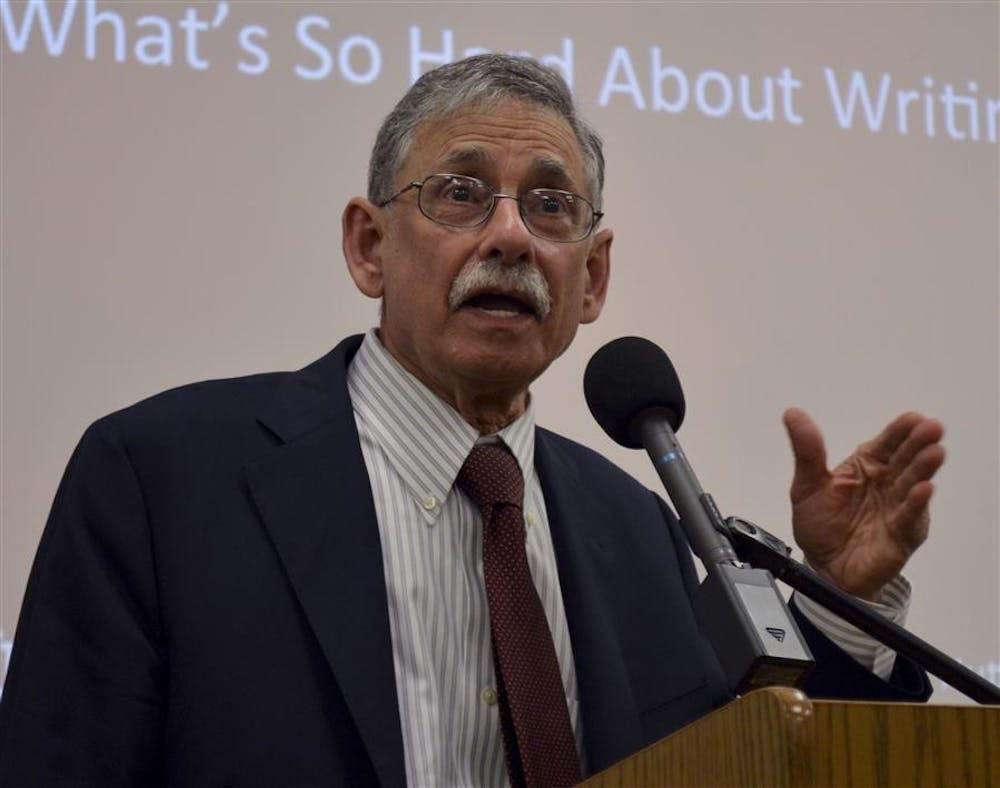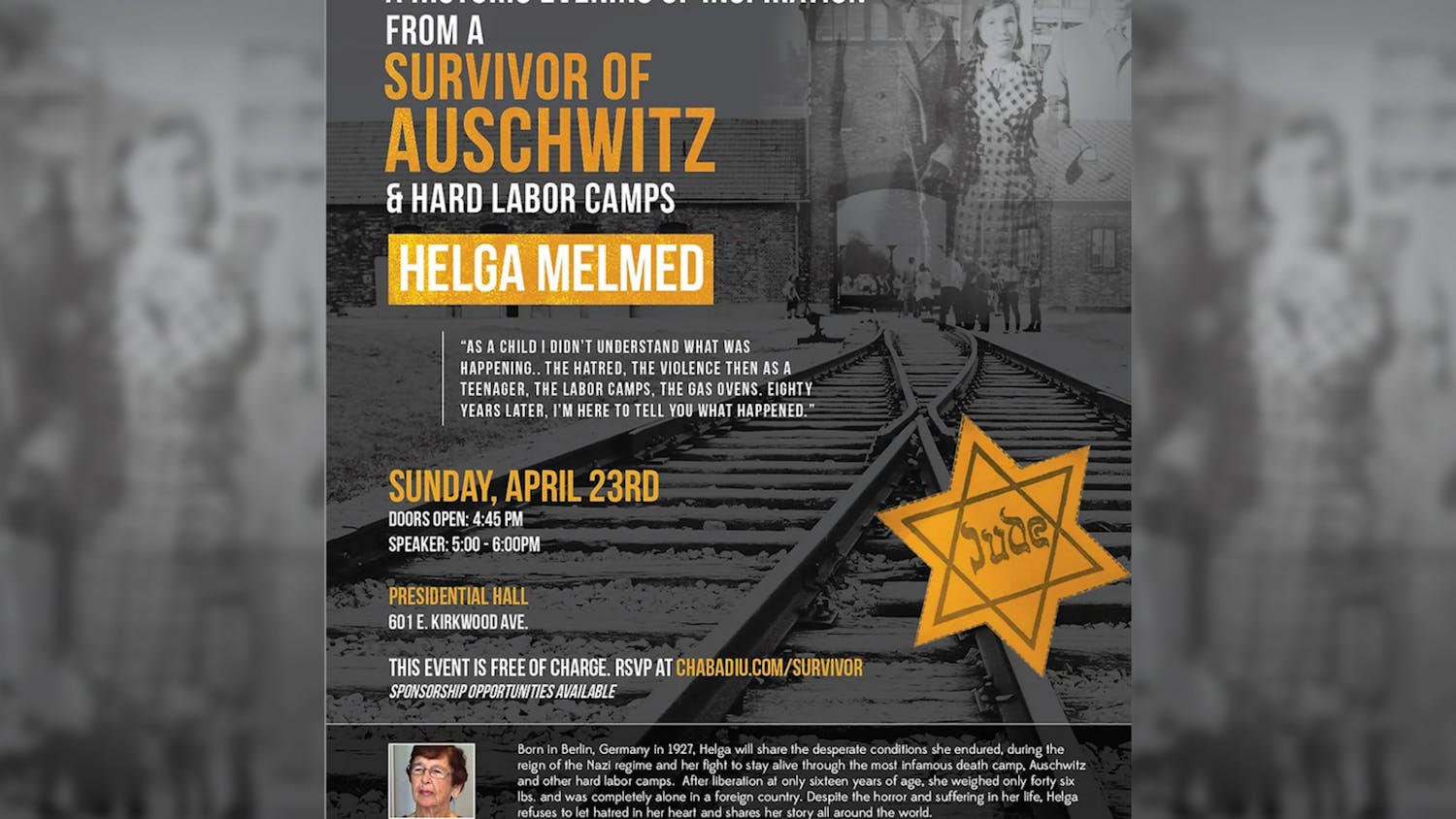It was 2009 and the Obamas had just moved into the White House. Several families were visiting, including an African-American family with a young boy, age five.
Looking up at the president, the boy asked Obama if he could feel his hair. The president bent over.
Stroking his head, the boy said, “It’s just like mine.”
At that moment, a photo was snapped, a photo that would be hung in the west wing of the White House.
“People can see the symbolism of that story,” said Robert Lehrman, a political speechwriter, in a talk Monday in the Ernie Pyle Auditorium. “You can move people with a story like that in a way that nothing else can.”
He explained the essentials of political speechwriting to IU students in his lecture called, “What’s So Hard About Writing a Great Speech?”
Lehrman spoke about speech writing style and being able to write in a way that is accessible to many different audiences.
Recounting his personal experiences writing speeches for politicians, he discussed the limits and opportunities of political communication.
“What people like to appreciate is that speakers have a number of limitations,”
Lehrman said. “We’re limited by what people understand, by what they know and what they believe.”
Lehrman was the first Chief Speechwriter in the White House for Vice President Al Gore, and he wrote more than 250 speeches for him.
He said he has spent the majority of his career writing speeches for politicians, as well as CEOs and celebrities.
A public speaking professor at American University since 1998, Lehrman created the school’s first speechwriting course in 2005.
Lehrman, a graduate of Tufts University, now teaches classes at four different universities in Washington, D.C.
He also writes political articles in his own name, which have been published in the Washington Post and New York Times, among other publications.
His most recent book is “The Political Speechwriter’s Companion: A Guide for Speakers and Writers.”
Among a plethora of speechwriting tips Lehrman gave students, he said using simple language while speaking publicly is most effective.
“The average American reads at a seventh-grade level,” he said. “That means, to me, accessible words. I don’t say ‘currently,’ I say ‘now.’ I don’t say ‘utilize,’ I say ‘use.’”
Lehrman scheduled time to sit in on a journalism class, dine with students at the Hutton Honors College and have breakfast with students who are part of the Political and Civic Engagement program during his visit.
That extra time spent at IU was much more beneficial to students than simply the lecture itself, said Paul Zuradski, former director of speakers and lecturers for Union Board.
“Lehrman is being extremely generous with offering to come for the full two days,” Zuradski said. “A lot of times we’ll bring in a speaker for a one-time lecture, but we do want to get them involved in additional activities so they can interact with students in relevant classes and also more informal settings like lunches.”
Planning for Lehrman’s visit began at the end of last semester. Ryan Myers, who attended a class with Lehrman in Washington, D.C., pitched the idea to Union Board.
Since then, Union Board has collaborated with the Hutton Honors College to organize the event.
“I think the general goal of these lectures is to be both entertaining and educational in some way,” Zuradski said.
“With this lecture specifically, I think as long as students walk away having learned something new and also maybe feel like they can critically analyze political communication a little bit better, that would be a good outcome.”
Lehrman talks political speechwriting

Get stories like this in your inbox
Subscribe




